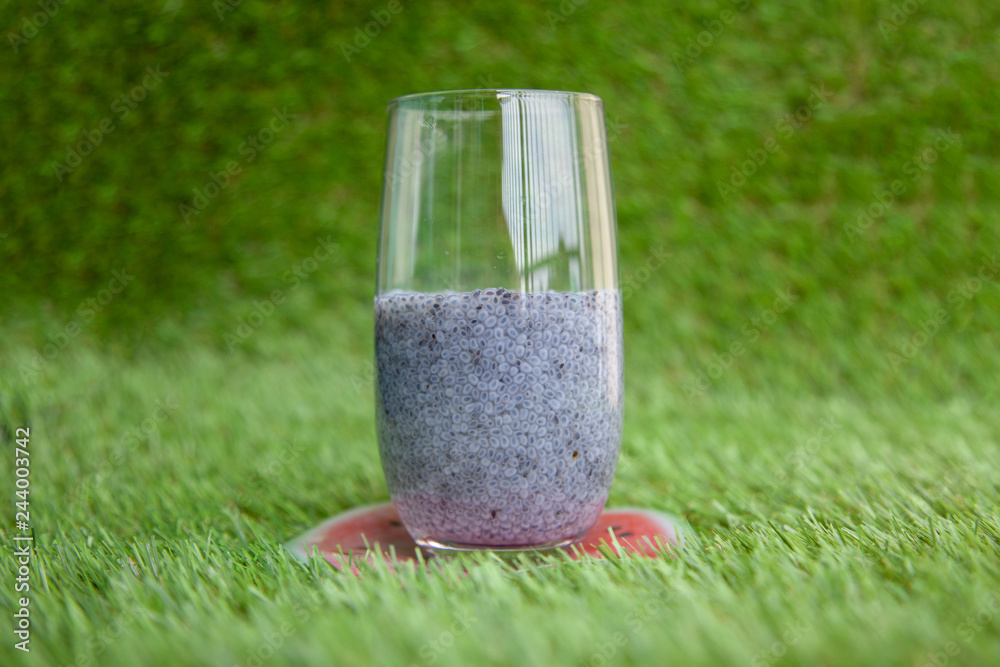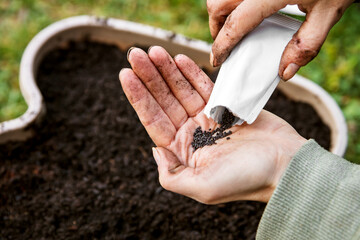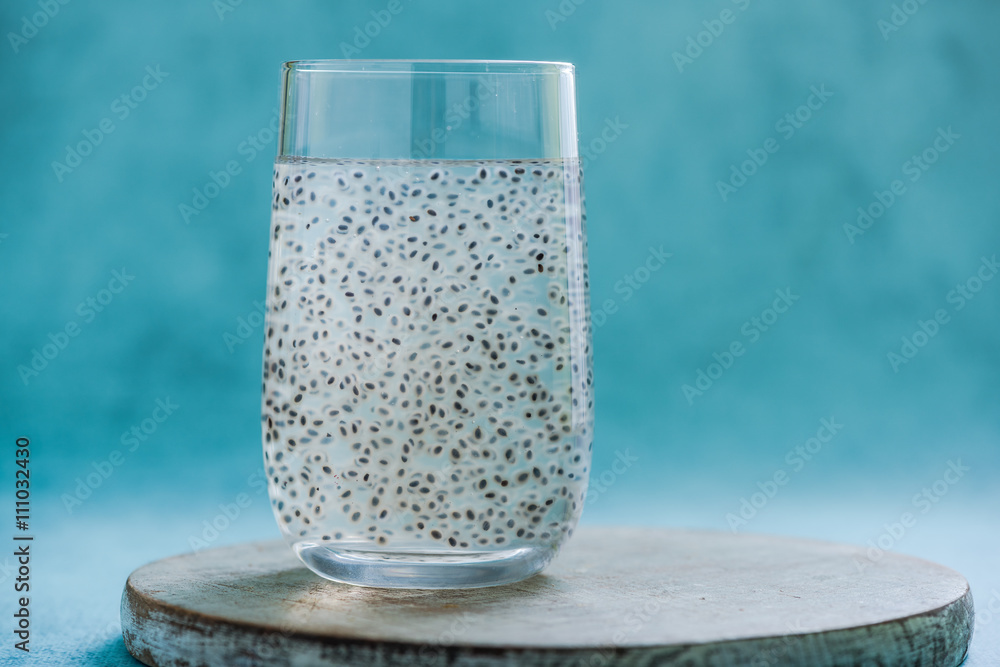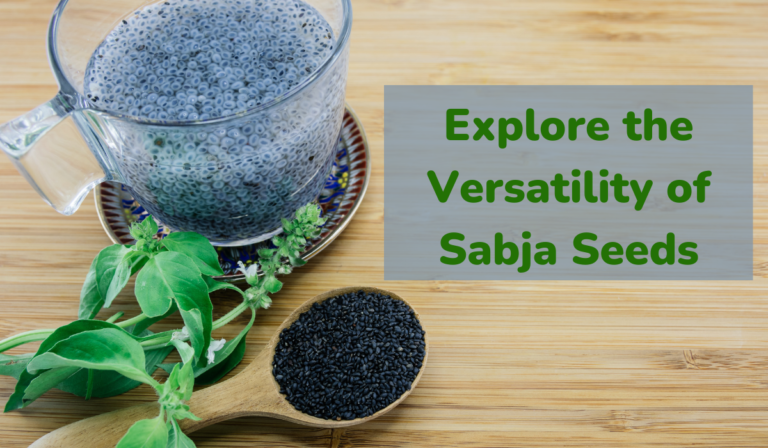Sabja seeds, which are usually mistook for chia seeds because of their similar appearance, are versatile seeds that offer multiple benefits. Consuming sabja seeds is not only good for physical health but mental health as well and has been used in Ayurveda and Chinese systems of medicine for years. Explore the health benefits of sabja seeds in this article.

Sabja seeds are native to India and have been cultivated in the Indian subcontinent for 5000 years. It has been available across the world now but is mainly cultivated in warm tropical regions of India, Pakistan, and Africa.
Sabja seeds are also called tukmaria or basil seeds and their scientific name is ocimum basilicum. It belongs to the Lamiaceae family, mint family, and the name basil is derived from the Greek word Basileus meaning Royal or King which makes sabja seeds ‘king of herbs’, just like Tulsi, which is called the ‘queen of herbs’.
Nutritional profile:
Sabja seeds have various health benefits because of their nutritional profile. It has a high content of protein, iron, calcium, fiber, and a few minerals and minimal calories.
If we take 100 grams of sabja seeds, it contains:
- 14 grams of proteins
- 13 grams of lipids
- 63 grams of carbohydrates
- 22 grams of fiber
- 2.27 milligrams of iron
- 31 milligrams of magnesium
- 1.58 milligrams of zinc
Apart from the above-mentioned nutrients, sabja seeds are a rich source of plant-based omega-3 fatty acids and vitamin E.
Proteins are the building blocks of hair, skin, muscle, and bones and help in body development.
The energy storage and its movement across your body is the responsibility of the fatty compounds called lipids.
Carbohydrates are sugar molecules and are also one of the main nutrients along with proteins and fats.
Fiber helps keep blood sugar in check by ensuring the regulation of the body’s sugar.
Iron, magnesium, and zinc are essential minerals that are required by the body for efficient working.
Health Benefits of sabja seeds:

The multiple health benefits offered by sabja seeds are why they have been used in treatment since ancient times. People might have forgotten how essential this food item is to be involved in your daily diet. Consulting a nutritionist would help you better understand why you should add sabja seeds to your balanced diet.
Here is a list of multiple health benefits that you will get from adding sabja seeds to your diet.
Aids in weight loss:
Nutritionists suggest adding sabja seeds to your diet if you are trying to shed some extra pounds off your body because they aid weight loss and are considered one of the effective weight loss drinks. Sabja seeds are rich in dietary fiber that helps reduce weight loss by improving your satiety levels. You will avoid overeating and the calorie intake will be reduced as well which will also decrease the cholesterol levels in your body. Since sabja seeds also have protein content they will help you maintain lean muscles in your body.
Controls sugar levels:
Sabja seeds have been used in diabetic treatments for a long time because they keep your blood sugar level in control as they have fibers that store energy and regulate blood sugar levels. Sabja seeds are good for diabetic patients because they slow down the body’s metabolism and control the conversion of carbs into glucose.
Boosts skin health:
Sabja seeds have antioxidants, proteins, iron, and vitamin K which improves your skin health. Your body will secrete more collagen by consuming sabja seeds which will be beneficial for your body because it will act as a boost to the creation of new body cells. So, if you have damaged skin cells, consuming sabja seeds will improve your skin by improving it and making it brighter and more lively.
Good for your hair:
Your thinning hair could get benefits from consuming sabja seeds because they have proteins that are basically the building blocks for both skin and hair. Apart from that, the presence of vitamin K improves blood circulation aiding your scalp health.
Good for heart health:
The antioxidant properties of sabja seeds allow a person to fight the radical cells in their body, which in turn keeps the risk of chronic heart diseases at bay. Sabja seeds aid in relaxing the arterial walls and if there are any clogged arteries they would aid it as well.
The anti-inflammatory and anti-carcinogenic properties of sabja seeds prevent cell damage and reduce the risk of cancer. The risk of heart attacks will be reduced because sabja seeds control cholesterol levels as well by controlling your calorie intake.
Cooling effect:
Sabja seeds are usually used in summer and in drinks because they have a cooling effect to them that not only keeps you hydrated in summer but also keeps body heat in control and prevents any discomfort caused due to hot summer days. If you are looking for more such options, gond katira is one such food that will keep your body temperature in control during summer.
Sabja seeds on hot summer days will help your body be hydrated if added to drinks because they soak water and are a good source of hydration. They will boost the feeling of fullness in your body in summer ensuring you do not eat more than is required.
How to add sabja seeds to your diet?

The best ways to add sabja seeds to your diet would be better suggested by a nutritionist who would examine your body and your fitness goals and would suggest accordingly.
But if you are looking for easy ways to incorporate sabja seeds into your balanced diet, here are a few suggestions:
Soak them:
Sabja seeds are hard to eat; that is why they should be soaked in water before eating them. By soaking they will absorb the water and they would develop a jelly-like layer that would make the seeds edible.
You can soak the seeds for 30 minutes before consuming them or soak them overnight. There is no fixed amount of water in which you need to soak them because they will absorb the water as much as they need.
Add to your regular water:
Consuming sabja seeds on an empty stomach first thing in the morning will help you reduce belly fat. Soak the seeds in a glass of water and drink it in the morning and you will experience favorable results.
Honey and lime water:
You can add sabja seeds in lukewarm water with a spoonful of honey and a few drops of lime in it. It is also an effective way to reduce belly fat.
Add to your smoothies and milkshakes:
If you make smoothies, you can add soaked sabja seeds to them. Sabja seeds do not have any taste so they will not affect the taste of your smoothie. You can make milkshakes the same way and add soaked sabja seeds to them.
Salad dressing:
Adding sabja seeds to your salad as dressing is also one option that you can try to incorporate the seeds into your diet.
Precautions, if any:
- Sabja seeds do not come with side effects but if you have swallowing issues you should avoid them because it would be difficult for you to swallow them even in water because once soaked, they become triple their size.
- Sabja seeds have vitamin K that aids blood clotting so if you are on blood thinning medicines, you need to avoid incorporating basil seeds in your diet.
- Sabja seeds have high fiber content so if you consume more than is required by your body you experience bloating and gastric issues.
- Overconsumption of basil seeds can cause nausea vomiting or heartburn. So when adding it to your diet be mindful of the portions and it is always better if you would consult your nutritionist.
Conclusion:
Basil seeds, sweet basil or as commonly called, sabja seeds, have multiple health benefits and have been used as medicinal remedies for ages. Consuming them on a regular basis, especially on an empty stomach will show you quick results. Make sure to soak them before consuming them.
Sabja seeds are a great option to add to your diet if you are on the journey of losing a few pounds off your body.




